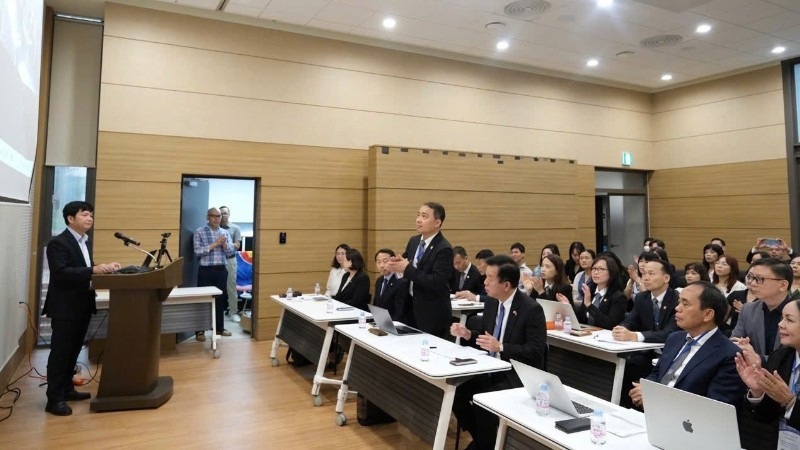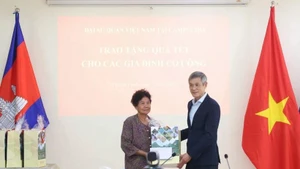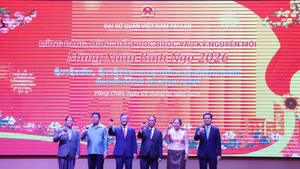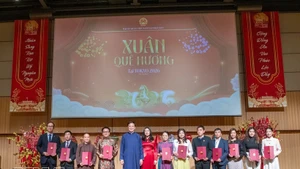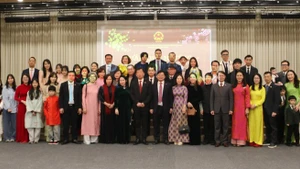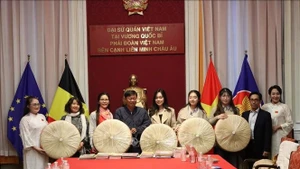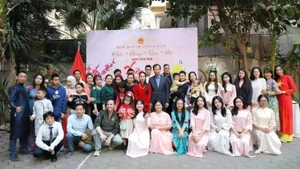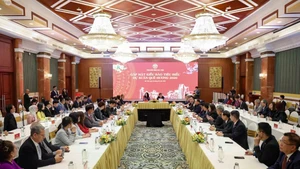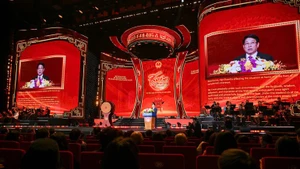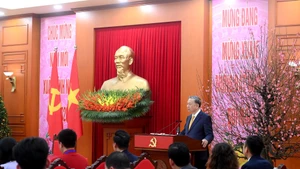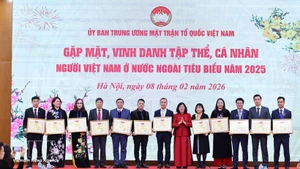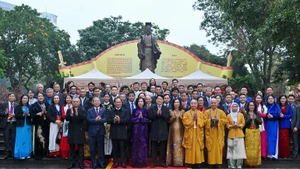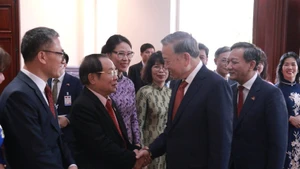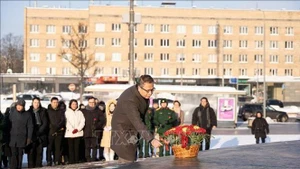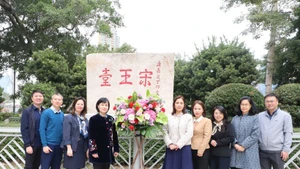Aiming to provide free legal assistance for overseas Vietnamese
In recent years, in coordination with various agencies, organisations and mass associations, bar associations across Viet Nam have carried out various activities to disseminate laws and provide legal aid to different target groups nationwide.
However, there remains a community of Vietnamese citizens living, studying and working abroad who also wish and need to receive legal support to address issues directly related to their lives overseas, as well as their legal relationships with Viet Nam. These include matters such as repatriation, investment in Viet Nam, property relations, inheritance, as well as issues concerning nationality, marriage and divorce, property ownership, employment, and business activities.
To meet this demand, the Ha Noi Bar Association has launched an initiative to provide legal support for overseas Vietnamese through activities aligned with the professional functions of lawyers, in coordination with and supported by relevant agencies and organisations.
According to Huynh Phuong Nam, Vice Chairman of the Ha Noi Bar Association, the association clearly defines that this legal aid initiative for overseas Vietnamese is non-profit. It prioritises support for vulnerable groups at risk of discrimination, such as manual labourers, domestic workers, women, Vietnamese brides, victims of violence, and children, as well as small and micro enterprises founded or run by overseas Vietnamese that are facing difficulties.
The forms of legal assistance are also flexible and diverse, given the geographical distances involved. Support may be provided through cooperative and joint activities, or via online legal dissemination to Vietnamese citizens residing in the host country.
Recently, the State Committee for Overseas Vietnamese Affairs under the Ministry of Foreign Affairs, in coordination with the Vietnamese Embassy in the Republic of Korea, the Ha Noi Bar Association and the Gyeonggi Bar Association (the Republic of Korea), successfully organised a programme to disseminate and clarify legal regulations for Vietnamese citizens currently living, studying and working in the Republic of Korea. This marks the first time a programme offering free legal support on the laws and policies of both countries for overseas Vietnamese has been systematically implemented.
Key issues that attracted significant interest included labour contract regulations under Korean law, salaries, allowances, insurance, family law involving foreign elements, investment, and visa extensions.
“What makes this programme different from previous ones we held at the State Committee for Overseas Vietnamese is that this time we provided direct legal consultations to individuals, not just to representatives of Vietnamese associations (who are mostly well-off businesspeople). It also involved local lawyers in the host country, giving overseas Vietnamese a local contact for support. More importantly, it covered both Vietnamese law and host country law, unlike before when we mainly focused on domestic regulations. We see this as a pilot model for long-term initiatives in other countries,” shared lawyer Huynh Phuong Nam.
According to the State Committee for Overseas Vietnamese, the communication and legal consultation programme for Vietnamese citizens living, working and studying in the Republic of Korea is a practical initiative in response to Resolution No. 66 of the Politburo. At the same time, it contributes to enhancing the awareness and legal compliance of the Vietnamese community in the Republic of Korea with regard to both Vietnamese and Korean laws.
More cross-border legal support programmes needed
“With only around two hours for consultation, it was clearly not enough, as many questions remained unanswered. If similar events are held in future, our community will be very pleased and grateful to the Embassy and the legal delegation,” said Pham Thi Mai Thuong, CEO of VietRise Company and project manager of ‘Vietnamese Street in the Heart of Seoul’, who attended the programme.
Most Vietnamese participants considered the programme highly beneficial, with topics closely aligned with the interests of the Vietnamese community in the Republic of Korea. “As someone running a business in the Republic of Korea, I personally pay attention to how remittances can be sent back to Viet Nam, as well as to regulations on taxation, investment, and real estate law — even matters such as investing in companies in Viet Nam or establishing a legal entity between Viet Nam and the Republic of Korea,” Mai Thuong added.
According to Dao Tuan Hung, Chairman of the General Association of Vietnamese People in the Republic of Korea, the Vietnamese community's understanding of the law remains limited due to various reasons. Therefore, this legal consultation programme was very useful, although the duration was rather short. He expressed his hope that, in the future, the Vietnamese community in the Republic of Korea will have more opportunities to collaborate with the Ha Noi Bar Association and Korean lawyers to organise more in-depth programmes and establish regular legal information channels to promptly provide legal advice and policy updates to overseas Vietnamese.
Clearly, legal support programmes for overseas Vietnamese have become a vital pillar, helping them feel more confident when facing complex legal issues while affirming the attention and responsibility of relevant authorities in both countries in protecting the legitimate rights and interests of Vietnamese nationals abroad.
